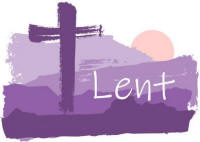During this Sunday
there are options for two sets of readings. If a parish has catechumens and
people preparing for full communion at the Easter Vigil, the parish may choose
to use the readings from the A Cycle. We have posted reflections for the A cycle
on our webpage. Go to: LENT YearA
Dear Preachers:
 There aren’t many more dramatic stories in the bible than
today’s gospel. The story starts well. John tells us Jesus comes to the temple
in the morning. The mood is set: a new day’s light enters the holy place. Jesus
takes a seat, the traditional posture of a teacher. To make the point clearer
John even spells it out for us, Jesus “taught them.” At first glance the
teaching seems interrupted. We wonder if we will ever get to hear what he had to
teach them. But of course, the teaching is the unfolding story and we who hear
it anew today are anxious to learn what teaching Jesus has for us. There aren’t many more dramatic stories in the bible than
today’s gospel. The story starts well. John tells us Jesus comes to the temple
in the morning. The mood is set: a new day’s light enters the holy place. Jesus
takes a seat, the traditional posture of a teacher. To make the point clearer
John even spells it out for us, Jesus “taught them.” At first glance the
teaching seems interrupted. We wonder if we will ever get to hear what he had to
teach them. But of course, the teaching is the unfolding story and we who hear
it anew today are anxious to learn what teaching Jesus has for us.
The scribes and Pharisees considered themselves the official religious teachers.
We meet the Pharisees frequently in these stories; they are the scrupulous
practitioners of the religious observance and the scribes are the legal experts.
Men from these two groups bring the woman to Jesus and present him with a
dilemma. If he went along with the religious law (e.g. Lev. 20:10, Deut. 22:
13-24) he would lose his reputation for mercy and as one who had welcomed
sinners. He would also anger the Romans, since the Jewish people could not
impose the death penalty. On the other hand, if Jesus pardoned the woman, he
would be accused of breaking the Mosaic law; and more, he might have been seen
as one who condones adultery.
The modern reader detects other factors in the story. At a recent scripture
reflection with a group of parishioners, we read this story and no sooner had
the reading and a minute of silent reflection ended than a woman spoke up,
“Where’s the guy? It takes two to tango. I bet those men let him go!” (Another
reason, when possible, for the preacher to get varied input on a passage: a
chance to hear the scriptures from another perspective.) We noted that the woman
isn’t even named. For the accusers, the woman is just a shameless “case in
point” to be used as an instrument to trap Jesus. But God wants no person used,
treated as a thing. Remember that in Genesis, humans were created by God and in
God’s image and likeness, animated by God’s breath/Spirit. The learned religious
leaders failed to see God’s image and breath in the one they called “this
woman.”
For the charge of adultery to stick, two men and only men, would have had to be
witnesses. What a humiliating situation for the woman; made to stand in public
before a crowd of accusers and, I am sure, curious spectators. The cards are
stacked against her. I think of some people on death row I know who were too
poor to afford good lawyers, have spent years on the row hoping to get someone
to review their case, pay for DNA tests, move their appeals process along, etc.
The woman was guilty, all that was left was for her execution to be carried out.
The woman’s fate is sealed, yet I am struck by the opening lines of the Isaiah
reading: God “opens a way in the sea, and a pathway in the mighty waters....”
The allusion, of course, is to the exodus from Egypt. God’s people were in
vise-like grip, trapped with no future. But God “opened a way” for them. The
prophet reminds his contemporaries caught in a new slavery, this time in
Babylon, that their God can do again what God did for them once before—free them
from bondage, get them out of an impossible bind.
Isaiah tells the people they should look back to what God once did for them and
see it, not as something that just happened long ago, but to trust that God can
do it again. In fact, their looking to their past will not have to be with a
nostalgia to events that are only a distant memory. God will act again on their
behalf. “Remember not the events of the past, the things of long ago consider
not; see I am doing something new! Now it springs forth, do you not perceive
it?” The woman is in the bind Israel was in and she too needs to be let out of a
trap. God needs to do “something new” for her.
So often people will say, as they reflect on a past crisis or difficult time, “I
would never have gotten through that had God not helped me and given me
strength!” We look back at what seemed impossibly difficult and only later,
after we passed through the period of trial, see the hand of God helping us.
Psalm 23, everyone’s favorite, I bet, describes that strong guiding presence as
“your rod and staff.” Well, Isaiah also invites us to remember how God stood
with us and to trust that in whatever bind we currently are in or will get into
at a future time, that God’s help will “spring forth.” In fact, look closer,
Isaiah invites, God is already doing something for you—even in the “wasteland.”
Wasn’t this true for the woman caught in adultery? She was in the wasteland of
guilt and surrounded by Isaiah’s “jackals” who wanted her end. Even more, she
was just being used to trap Jesus. She must have felt terribly alone; but we
believers can see what she did not--- in her wasteland God was “doing something
new.” Jesus was with her. The scriptures don’t tell us what Jesus was writing on
the ground. Throughout history there have been guesses by biblical scholars and
the pious. Whatever he wrote is not the point. But from his silent moment came a
word that, like the creative word God spoke in the beginning of Genesis,
shattered the darkness with God’s light and creative power.
John’s gospel has strong ties to Genesis. The first book starts with the
creation account. John’s gospel opens in a similar way, “In the beginning....”
John is showing that Jesus is the Word and wisdom of God, recreating a broken
and sinful humanity. Isaiah reminds us that throughout the history of God’s
people, God was always at work in the process of recreation. God is always ready
to forgive us the sin that defaces the Creator’s image in us and make of us a
new creation, free from sin’s destructive control. This forgiveness and new life
is what the woman experienced at Jesus’ word.
Maybe we have been successful in our chosen Lenten observance—or not. Taking our
cue from today’s readings, we are stirred to a Lenten prayer of thanksgiving at
this Eucharist. The psalm response to the first reading sets the tone for our
prayer today. Even as we remember the great deeds God has done for us, we take
Isaiah’s advice and move our gaze from the past to the present—and then to the
future. As we look back and see the hand of God at moments of need and reflect
on the saving work God did for us in Jesus’ life, we can say, with the psalmist,
“The Lord has done great things for us; we are filled with joy.” We are thankful
that God was there for us when we were “captives,” when we sowed “in tears” and
when we reaped a harvest of “rejoicing” (Psalm 126). And in our prayer of
thanksgiving we also express the firm hope that God will lead us out of any
barren place we now or in the future will experience.
How could Isaiah have known that the “something new” God had planned for us was
Jesus? Today’s gospel shows how he was the oasis for the woman in her wasteland.
Jesus makes a new way of living God’s law possible, not by relying on external
rules and observances, but on the Spirit’s new life given us at baptism—our
“rivers in the wasteland.” Jesus set the woman free from the trap of her
accusers as well as from her sin, “Neither do I condemn you, from now on do not
sin any more.” As with the woman, so with us, Jesus frees us from our past sin,
reanimates God’s image in us and sets us free and now able to overcome sin. The
woman was as good as dead, but was given new life through his freeing word. So
it is with us this Lent, we stand aware of our sins before God and Jesus’ word
frees us to live a new life—Isaiah was right, God has done “a new thing” for us.
Click here for a link to this Sunday’s readings:
https://bible.usccb.org/bible/readings/040625-YearC.cfm
QUOTABLE
|
“Capital punishment is against the better judgment of modern
criminology and above all, against the expression of love in the
nature of God”
----Rev. Martin Luther King
|
JUSTICE BULLETIN
BOARD

See, I
am doing something new!
—Isaiah 43:19
I
always love this passage. How often do we go through our day not realizing that
each day is a day unlike any other day. God shouts in each rising sun, “See, I
am doing something new!” And this is certainly true with the diversity we see in
God’s creation.
I wonder what God must think regarding how we are taking care of the Garden
given to us to tend as our first job in Genesis? Fifty-four years ago, the World
Synod of Catholic Bishops had some very specific thoughts about the environment
in their document, Justicia in Mundo (Justice in the World). Fifty-four years
ago , they wrote: “People are beginning to grasp a new and more radical
dimension of unity; for they perceive that their resources, as well as the
precious treasures of air and water--without which there cannot be life-- and
the small delicate biosphere of the whole complex of all life on earth, are not
infinite, but on the contrary must be saved and preserved as a unique patrimony
belonging to all human beings (8). Are we grasping this fifty-four years later?
Stop by the tables in the narthex to join the Works of Mercy ministries that
seek to care for our common home and prayer groups doing spiritual works of
mercy:
Laudato Si Circle/Creation Care - Parishioners gather monthly in a small group
format by Zoom to tackle the crisis of neglecting the earth through prayer,
education, and action. Coordinator—Monica Kleimeyer
Greener Lent - The program encourages individuals and groups to reduce or
abstain from meat to promote spiritual and environmental well-being. Contact at
Cathedral--Monica Kleimeyer
NC Catholics Caring for our Common Home – A diocesan network to mobilize all NC
Catholics to act more to care for the earth and all its inhabitants through
prayer, reflection, and action using the goals of the Laudato Si encyclical.
Coordinator—Barbara Quinby
Spiritual Works of Mercy -Prayer is essential to a walk with God and very needed
when engaged in the work of building a better world:
1. Just Pray-ers—Barbara Quinby
2. The Reflecting Pool—Lauren Green
3. Lectio Divina —Anne Werdel
4. Traveling Statues—Monica Kleimeyer
Prison Ministry --Parishioners are trained to participate with prisoners in
prayer services at the prison. Coordinator—Sandy Peace
Help make things new!
Barbara Molinari Quinby, MPS,
Director
Office of Human Life, Dignity, and Justice
Ministries
Holy
Name of Jesus Cathedral, Raleigh, NC
FAITH BOOK

Mini-reflections on the Sunday scripture readings
designed for persons on the run. “Faith Book” is also brief enough to be posted
in the Sunday parish bulletins people take home.
From today’s Gospel reading:
Then Jesus said to the woman,
“Neither do I condemn you.
Go, and from now on,
do not sin any more.”
Reflection:
One can
imagine that hearing the Word of God, which did not condemn the woman, but set
her free, might also have been a word that renewed and enabled her to start a
new life. What effect would it have on us if we knew we had done wrong and were
ready to be harshly and justifiably judged – and weren’t? Would we feel that
“the finger of God” had touched and freed us so we could start all over?
So, we ask ourselves:
POSTCARDS TO
DEATH ROW INMATES
“One has to strongly affirm that condemnation to the death penalty is an
inhuman measure that humiliates personal dignity, in whatever form it is
carried out."
---Pope
Francis
Inmates
on death row are the most forgotten people in the prison system. Each week I am
posting in this space several inmates’ names and locations. I invite you to
write a postcard to one or more of them to let them know that: we have not
forgotten them; are praying for them and their families; or, whatever personal
encouragement you might like to give them. If the inmate responds, you might
consider becoming pen pals.
Please write to:
-
Jeremy D. Murrell #0940436 (On death row since 2/17/2006)
-
Darrell Maness #0831753 (4/4/2006)
-
Ryan M. Garcell #0775602 (4/4/2006)
----Central
Prison P.O. 247 Phoenix, MD 21131
Please
note: Central Prison is in Raleigh, NC., but for security
purposes, mail to inmates is processed through a clearing house at the above
address in Maryland.
For
more information on the Catholic position on the death penalty go to the
Catholic Mobilizing Network:
http://catholicsmobilizing.org/resources/cacp/
On this
page you can sign “The National Catholic Pledge to End the Death Penalty.” Also,
check the interfaith page for People of Faith Against the Death Penalty:
http://www.pfadp.org/
DONATIONS
“First Impressions” is a service to preachers and those wishing to
prepare for Sunday worship. It is sponsored by the Dominican Friars. If you
would like “First Impressions” sent weekly to a friend, send a note to fr.
John Boll, OP at
jboll@opsouth.org.
If you
would like to support this ministry, please send tax deductible contributions to
fr. Jude Siciliano, O.P.:
St. Albert Priory
3150 Vince Hagan Drive
Irving, Texas 75062-4736
Make
checks payable to: Dominican Friars.
Or, go to our webpage to make an online donation:
https://www.PreacherExchange.com/donations.htm
RESOURCES
ORDERING
OUR CDs:
We have compiled Four CDs for sale:
-
Individual CDs for each Liturgical Year, A, B
or C.
-
One combined CD for “All Liturgical Years A, B
and C.
If you are a preacher, lead a Lectionary-based
scripture group, or are a member of a liturgical team, these CDs will be helpful
in your preparation process. Individual worshipers report they also use these
reflections as they prepare for Sunday liturgy.
You can order the CDs by going to our webpage:
https://www.PreacherExchange.com
and clicking on the “First Impressions” CD
link on the left.
OTHER
PUBLICATIONS BY EMAIL:
1. "HOMILÍAS DOMINICALES" ---These Spanish
reflections on the Sunday and daily scriptures are written by Dominican sisters
and friars. If you or a friend would like to receive these reflections drop a
note to "Fr. John J. Boll, O.P." <preacherexchange@att.net>
2. "VOLUME 2" is an opportunity for you to hear from the readers of First
Impressions. To subscribe or Send your own reflections: Send them to "Fr. John
J. Boll, O.P." <preacherexchange@att.net
> Your contributions to Volume 2 are welcome.
OUR WEBSITE:
https://www.PreacherExchange.com - Where you will find Preachers
Exchange, which includes "First Impressions," "Homilías Dominicales," and
"Volume 2" as well as articles, book reviews, daily homilies and other material
pertinent to preaching and Scripture reflection.
FOR EMAIL
HELP OR TO UNSUBSCRIBE, SUBSCRIBE, OR CHANGE:
Email "Fr. John J. Boll, O.P." <preacherexchange@att.net>
FIRST IMPRESSIONS Archive
(The latest are always listed first.)
• Lent-5th Sunday (A) •
• Lent-5th Sunday (C) •
• Lent-4th Sunday (A) •
• Lent-4th Sunday (C) •
• Lent-3rd Sunday (A) •
• Lent-3rd Sunday (C) •
|